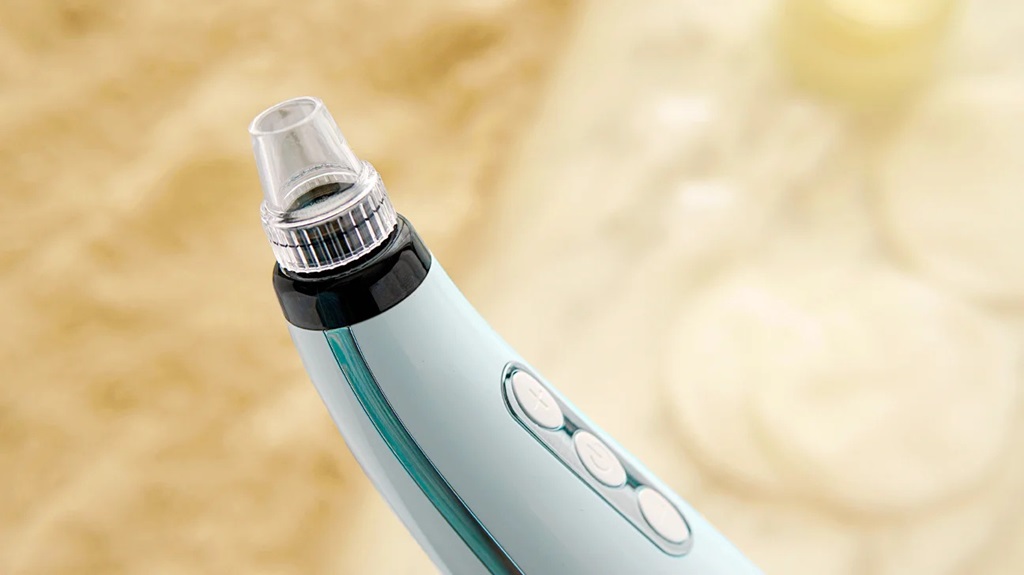Do you spend long hours sitting in front of a computer screen, working as a programmer? Have you noticed that your skin tends to get oily and shiny throughout the day? If yes, then you are not alone. Oily skin is a common issue faced by many programmers due to their sedentary lifestyle and prolonged screen exposure. But don’t worry, with the right skincare routine, you can keep your skin healthy and glowing even while sitting in front of a computer. In this article, we will discuss some useful tips and tricks for oily skin care for programmers. The attribution for this article belongs to SecreThomeRemedies
Understanding Oily Skin

Before we dive into the tips, let’s first understand what oily skin is and why it is important to take care of it. Oily skin is characterized by excess sebum production, which can lead to clogged pores, acne breakouts, and dull-looking skin. When you spend long hours in front of a computer screen, your skin is exposed to blue light and free radicals, which can further aggravate oily skin issues.
Tips for Oily Skin Care
1. Cleanse Your Face Twice a Day
Cleansing your face twice a day is essential for maintaining healthy and clear skin. Use a gentle cleanser that is specifically formulated for oily skin to remove excess oil, dirt, and impurities. Avoid using hot water as it can strip your skin of natural oils and make it even more oily. Instead, use lukewarm water to wash your face. Try the DIY Natural Skin Care: A Complete Guide
2. Use a Toner
After cleansing your face, use a toner to remove any remaining dirt and impurities. Toners also help to balance your skin’s pH level and tighten your pores, which can reduce the production of sebum. Look for a toner that contains ingredients like salicylic acid, witch hazel, or tea tree oil, which are known for their oil-controlling properties.
3. Moisturize Your Skin
Contrary to popular belief, oily skin needs hydration too. Use a lightweight, oil-free moisturizer that will not clog your pores. Look for a moisturizer that contains ingredients like hyaluronic acid, glycerin, or ceramides, which can help to hydrate your skin without making it oily.
4. Use Sunscreen
Sunscreen is essential for protecting your skin from harmful UV rays that can cause skin damage and premature aging. Look for a sunscreen that is oil-free and has at least SPF 30. Apply it every day, even if you are indoors, as blue light from computer screens can also cause skin damage.
5. Exfoliate Once a Week
Exfoliation is the process of removing dead skin cells from the surface of your skin. This can help to unclog your pores and prevent acne breakouts. However, be gentle when exfoliating your skin as harsh scrubbing can irritate your skin and cause more oil production. Use a gentle exfoliator once a week.
6. Use Oil-Absorbing Products
There are several oil-absorbing products available in the market that can help to control excess oil production. These include oil-absorbing sheets, blotting powders, and mattifying primers. Keep them handy in your bag and use them whenever you notice your skin getting oily.
7. Stay Hydrated
Drinking enough water is essential for maintaining healthy skin. When you are dehydrated, your skin tends to produce more oil to compensate for the lack of hydration. Aim to drink at least 8 glasses of water every day.
8. Maintain a Healthy Diet
Eating a healthy diet rich in fruits, vegetables, and whole grains can also help to improve the health of your skin. Avoid consuming too much oily and greasy food as it can further aggravate your oily skin issues.
9. Take Breaks and Move Around
Taking breaks and moving around can also help to improve the health of your skin. Prolonged sitting can lead to poor blood circulation, which can affect the health of your skin. Take short breaks every hour and move around to improve blood circulation.
10. Practice Stress Management
Stress can also contribute to oily skin issues. Practice stress management techniques like meditation, yoga, or deep breathing exercises to reduce stress and improve the health of your skin.
11. Avoid Touching Your Face
Avoid touching your face too often as it can transfer bacteria and dirt to your skin, which can lead to acne breakouts and other skin issues.
12. Use Non-Comedogenic Products
When choosing skincare and makeup products, look for products that are labeled as non-comedogenic. These products are formulated to not clog pores and are suitable for oily skin.
13. Get Enough Sleep
Getting enough sleep is essential for maintaining healthy skin. Aim to get at least 7-8 hours of sleep every night to give your skin enough time to repair and regenerate.
14. Don’t Overdo It
While it’s important to take care of your skin, don’t overdo it. Using too many products or exfoliating too often can strip your skin of natural oils, leading to even more oil production. Stick to a simple and consistent skincare routine.
15. Consult a Dermatologist
If you have persistent oily skin issues or acne breakouts, it’s best to consult a dermatologist. They can recommend the best treatment options for your specific skin type and help you achieve healthy, glowing skin.
In conclusion, oily skin is a common issue faced by many programmers, but with the right skincare routine and habits, you can keep your skin healthy and clear. Remember to cleanse, tone, moisturize, and protect your skin from harmful UV rays and blue light. Also, maintain a healthy diet, practice stress management, and consult a dermatologist if needed. By following these tips and tricks, you can achieve healthy, glowing skin even while sitting in front of a computer screen.





